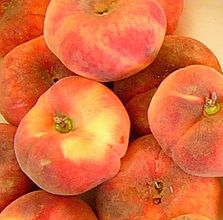Or search by topic
Number and algebra
Geometry and measure
Probability and statistics
Working mathematically
Advanced mathematics
For younger learners
Peaches Today, Peaches Tomorrow...



Peaches Today, Peaches Tomorrow printable worksheet
This problem is in three parts. If you are feeling confident about working with fractions, you might want to skip straight to part (ii) or part (iii).

(i) A little monkey had 60 peaches.
On the first day he decided to keep ${\bf \frac{3}{4}}$ of his peaches.
He gave the rest away. Then he ate one.
On the second day he decided to keep ${\bf \frac{7}{11}}$ of his peaches.
He gave the rest away. Then he ate one.
On the third day he decided to keep ${\bf \frac{5}{9}}$ of his peaches.
He gave the rest away. Then he ate one.
He gave the rest away. Then he ate one.
On the fifth day he decided to keep ${\bf \frac{2}{3}}$ of his peaches.
He gave the rest away. Then he ate one.
How many did he have left at the end?
(ii) A little monkey had 75 peaches.
Each day, he kept a fraction of his peaches, gave the rest away, and then ate one.
These are the fractions he decided to keep: $$ \frac{1}{2} \qquad \frac{1}{4} \qquad \frac{3}{4} \qquad \frac{3}{5} \qquad \frac{5}{6} \qquad \frac{11}{15}$$
In which order did he use the fractions so that he was left with just one peach at the end?
- Each fraction must be in its simplest form and must be less than 1.
- The denominator can never be the same as the number of peaches left.
For example, if there were 45 peaches left, he could not choose to keep $\frac{44}{45}$ of them.
Click here for a poster of part (ii) of this problem.
Related Collections
You may also like
Tweedle Dum and Tweedle Dee
Two brothers were left some money, amounting to an exact number of pounds, to divide between them. DEE undertook the division. "But your heap is larger than mine!" cried DUM...
Sum Equals Product
The sum of the numbers 4 and 1 [1/3] is the same as the product of 4 and 1 [1/3]; that is to say 4 + 1 [1/3] = 4 � 1 [1/3]. What other numbers have the sum equal to the product and can this be so for any whole numbers?
Special Sums and Products
Find some examples of pairs of numbers such that their sum is a factor of their product. eg. 4 + 12 = 16 and 4 × 12 = 48 and 16 is a factor of 48.

